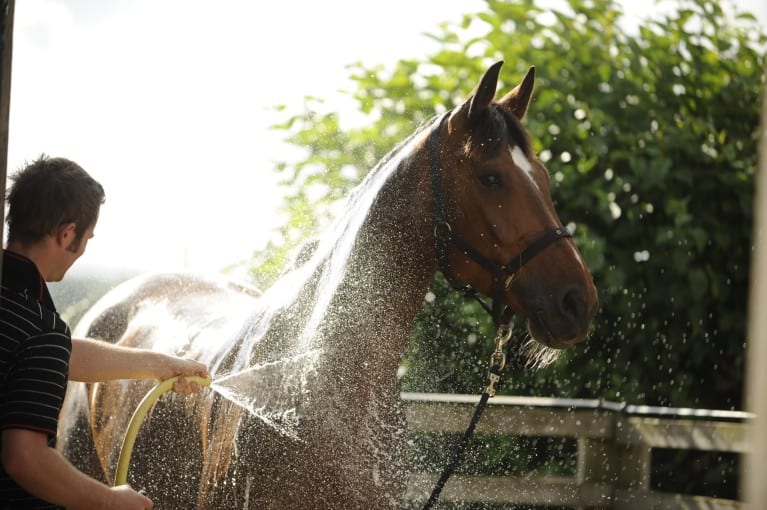Horse eye health is a critical aspect of overall equine well-being, and it requires dedicated attention. Proper care and maintenance of your horse’s eyes can prevent serious illnesses and ensure they lead a comfortable and fulfilling life. As an equestrian enthusiast, understanding the essentials of how to take care of horse eye health will equip you with the knowledge to safeguard your horse’s vision.

Why is Horse Eye Care Important?
Horses rely heavily on their vision for navigation, social interaction, and daily activities. A minor eye issue can escalate into a severe problem if not addressed promptly. By practicing good eye care habits, you can detect early signs of trouble and seek timely veterinary intervention. It’s essential to understand that horse eyes are delicate and require a gentle touch.

Basic Anatomy of the Horse Eye
Understanding the structure of a horse’s eye helps in recognizing abnormalities. The main components include the cornea, sclera, iris, retina, and lens. Each part plays a crucial role in ensuring clear vision. Any alteration in these structures can lead to vision problems and discomfort.
Common Horse Eye Problems
Several eye conditions can affect horses, including:
- Conjunctivitis: Inflammation of the conjunctiva, often caused by allergens or irritants.
- Cataracts: Cloudiness in the lens, leading to vision impairment.
- Uveitis: Inflammation of the uvea, which can cause pain and vision loss.
- Corneal Ulcers: Open sores on the cornea, usually due to trauma or infection.

Preventative Measures for Horse Eye Care
Consistent maintenance and preventive measures help in keeping your horse’s eyes healthy. Here are some steps you can take:
Regular Cleaning
Gently clean your horse’s eyes using a soft damp cloth to remove any dirt or debris. Avoid using harsh chemicals or rough materials that could cause irritation.
Routine Inspections
Inspect your horse’s eyes daily for signs of redness, swelling, or discharge. Early detection of anomalies can prevent long-term damage.
Proper Nutrition
A balanced diet rich in vitamins A and C supports eye health. Consult your veterinarian for a suitable feeding plan.
Safe Environment
Ensure your horse’s living area is free from sharp objects and hazardous materials that could cause eye injuries. Regularly check for potential dangers in their environment.

When to Consult a Veterinarian
If you notice persistent issues such as intense redness, continuous discharge, or signs of pain, it’s crucial to contact a veterinarian immediately. Delaying treatment can exacerbate the condition and lead to more severe complications.
Emergency Situations
In cases of trauma, such as a puncture wound to the eye, seek veterinary assistance urgently. These situations require prompt and professional attention to prevent lasting damage.
Regular Check-Ups
Even if your horse appears healthy, scheduling regular veterinary check-ups ensures any underlying issues are addressed before they become problematic.
Using Eye Protection
There are various protective gear options available to shield your horse’s eyes from debris and UV rays:
Fly Masks
Fly masks are essential during fly season to protect against irritations and potential infections caused by insects.
Goggles
For horses engaged in activities that could expose their eyes to debris, such as trail riding, protective goggles can be beneficial.
First Aid for Horse Eye Issues
Having a basic understanding of first aid for eye issues can prevent minor problems from escalating:
Flushing the Eye
If a foreign object enters your horse’s eye, gently flush it with a saline solution. Avoid using tap water or any unsterilized liquid.
Applying Eye Ointments
If prescribed by a veterinarian, apply ointments as directed. Ensure your hands are clean to prevent contamination.
Common Myths About Horse Eye Care
Several misconceptions circulate regarding horse eye care. It’s essential to separate fact from fiction:
Myth: Horses Can Self-Heal All Eye Issues
Fact: Professional veterinary care is often necessary to properly address many eye conditions.
Myth: All Eye Discharges Are Normal
Fact: Persistent or unusual discharge typically indicates an underlying issue requiring attention.
External Resources for Further Learning
For more comprehensive information on equine eye care, consider visiting Merck Veterinary Manual.
FAQ
What should I do if my horse has a swollen eye?
If your horse’s eye is swollen, it’s best to consult a veterinarian immediately to determine the cause and appropriate treatment.
How often should I clean my horse’s eyes?
Regularly clean your horse’s eyes, ideally on a daily basis, to remove dirt and prevent infections.
Can I use human eye drops for my horse?
No, always use veterinary-approved products. Human medications can be harmful to horses.
As an Amazon Associate, I earn from qualifying purchases.